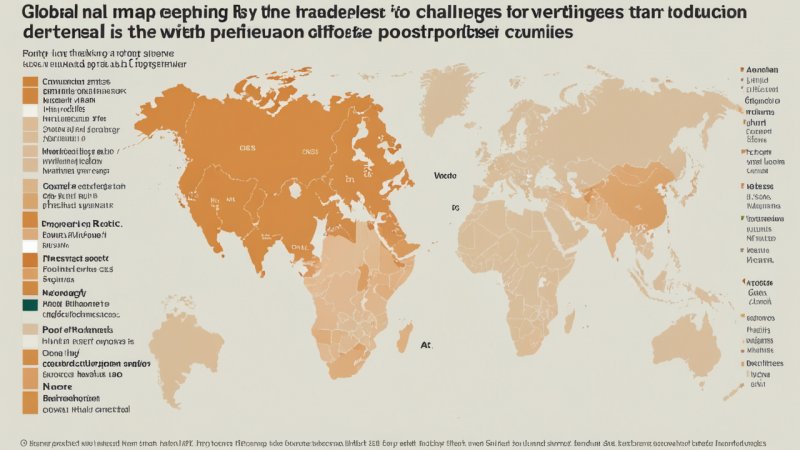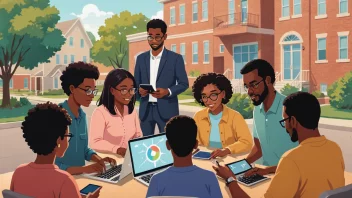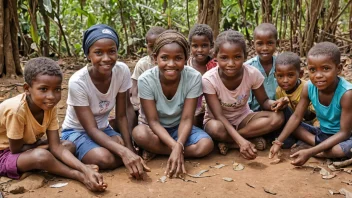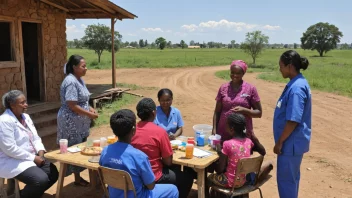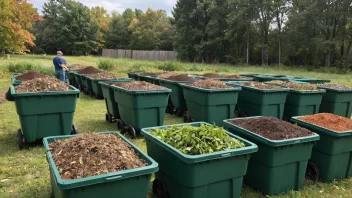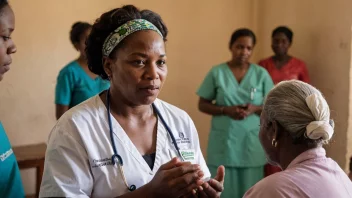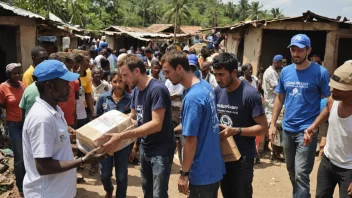Despite ongoing efforts to reduce poverty on a global scale, numerous challenges persist that hinder progress. Understanding these obstacles is crucial for developing effective strategies and mobilizing collective action. One of the primary challenges is economic inequality. Wealth distribution remains highly uneven, with a significant proportion of resources concentrated in the hands of a few. This inequality limits access to education, healthcare, and employment opportunities for marginalized communities, perpetuating the cycle of poverty.
Another major hurdle is the impact of climate change. Vulnerable populations, particularly in developing countries, are disproportionately affected by environmental degradation, natural disasters, and changing weather patterns. These factors can lead to food insecurity, loss of livelihoods, and displacement, making it increasingly difficult for communities to escape poverty. As climate-related events become more frequent and severe, addressing the intersection of poverty and environmental sustainability is essential.
In addition to economic and environmental factors, political instability plays a significant role in hindering poverty alleviation efforts. Conflicts, corruption, and weak governance can disrupt social services, inhibit development programs, and undermine trust in institutions. Communities affected by violence often experience a breakdown in essential services, further entrenching poverty and limiting opportunities for recovery.
Access to quality education is a vital component of poverty reduction, yet many children around the world still lack the opportunity to attend school. Barriers such as cost, distance, and cultural norms can prevent children from receiving an education. Furthermore, disparities in educational quality often exist, with marginalized groups receiving inadequate resources and support. Addressing these educational inequities is essential for empowering individuals and communities to break free from the cycle of poverty.
Healthcare access is another critical challenge in global poverty reduction. Many impoverished communities struggle with limited access to medical care, resulting in high rates of preventable diseases and mortality. Health disparities exacerbate poverty, as individuals who are unwell cannot work or support their families. Additionally, the COVID-19 pandemic has highlighted the vulnerability of marginalized populations, further straining healthcare systems and economic resources.
Social stigma and discrimination also pose significant barriers to poverty alleviation. Marginalized groups, including women, ethnic minorities, and individuals with disabilities, often face systemic discrimination that limits their access to opportunities and resources. Addressing these social issues is essential for creating an inclusive society where everyone has the chance to thrive.
Lastly, the challenge of funding and resource allocation remains a critical issue. While many organizations and governments are committed to poverty reduction, insufficient funding often impedes effective program implementation. Ensuring that resources are directed to the most vulnerable communities is vital for making a meaningful impact.
In conclusion, tackling global poverty requires a multifaceted approach that addresses economic inequality, climate change, political instability, education access, healthcare disparities, social discrimination, and funding challenges. By recognizing these obstacles and working together, individuals, organizations, and governments can create innovative solutions that empower communities and pave the way for a more equitable future.
Top Challenges Facing Global Poverty Reduction Efforts
Exploring the multifaceted challenges that hinder global poverty reduction efforts and the necessary strategies to overcome them.
